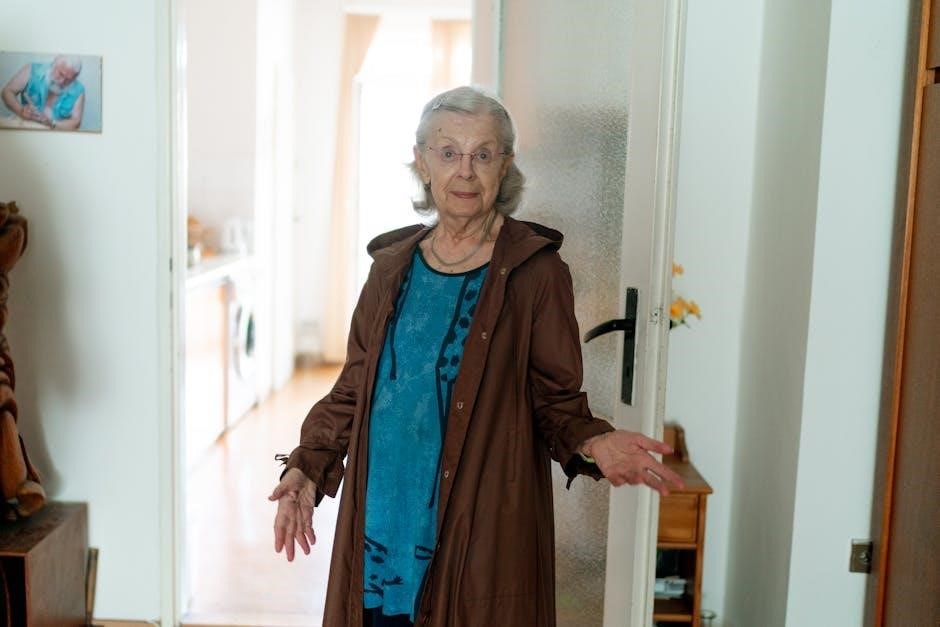You’d Be Home Now: An Exploration
Kathleen Glasgow’s “You’d Be Home Now” is available in PDF format, offering readers a convenient way to delve into Emory’s journey․ The eBook and physical copies provide access to this story of addiction, family, and finding one’s voice․

Overview of “You’d Be Home Now”
“You’d Be Home Now,” penned by Kathleen Glasgow, the acclaimed author of “Girl in Pieces,” presents a compelling narrative about a town grappling with tragedy and the quiet beauty of everyday existence․ The story centers on Emory, a teenager who has always been defined by others, navigating the complexities of family, addiction, and self-discovery․

The novel delves into Emory’s struggle to find her own identity amidst the chaos of her brother’s addiction and the opioid crisis affecting her community․ She’s always been seen as “the good one,” unlike her strong-willed sister Maddie or her troubled brother Joey․ However, Emory’s journey forces her to confront her own desires and redefine who she truly is․
Glasgow’s work explores themes of family dynamics, the impact of addiction on individuals and communities, and the importance of finding your voice․ Readers can access “You’d Be Home Now” in various formats, including PDF and eBook versions, allowing for convenient reading and exploration of this thought-provoking story․
Themes of Addiction and Family
“You’d Be Home Now” intricately explores the pervasive themes of addiction and its profound impact on family dynamics․ The story lays bare the raw realities of the opioid crisis, showcasing how it can ravage individuals and their loved ones, leaving behind a trail of devastation and broken relationships․ Through Emory’s experiences, readers witness the ripple effect of addiction as it permeates every aspect of her family’s life․
The novel delves into the challenges faced by families dealing with addiction, including the emotional toll, the constant worry, and the struggle to maintain normalcy․ It portrays the complexities of sibling relationships, highlighting the contrasting paths taken by Emory, Maddie, and Joey, each grappling with their own demons and insecurities․
Glasgow’s narrative emphasizes the importance of understanding, empathy, and communication within families affected by addiction․ It underscores the need for support systems, both within the family and from external sources, to navigate the difficult journey towards healing and recovery․ The availability of “You’d Be Home Now” in PDF format allows for wider accessibility to this poignant exploration of addiction and its impact on family bonds․
Emory’s Character Development
Emory Ward’s character development in “You’d Be Home Now” is a central focus, showcasing her transformation amidst the turmoil of her brother’s addiction and the pressures of her small-town life․ Initially portrayed as the “good one,” the quiet and obedient daughter, Emory embarks on a journey of self-discovery, challenging the expectations placed upon her and finding her own voice․
As she grapples with her brother Joey’s struggles, Emory confronts her own insecurities and begins to question her identity․ She sheds the label of the “reliable one” and starts to assert her own needs and desires․ Her relationship with her sister, Maddie, further influences her growth, as she learns to appreciate their differences and support each other through difficult times․
Emory’s character arc demonstrates the power of resilience and self-acceptance․ She learns to navigate the complexities of her family dynamics, finding strength in her own individuality․ The PDF version of “You’d Be Home Now” allows readers to closely follow Emory’s evolution as she confronts her challenges and emerges as a stronger, more authentic version of herself․
The Opioid Crisis Context
“You’d Be Home Now” is deeply embedded in the context of the opioid crisis, shedding light on its devastating impact on individuals, families, and communities․ Kathleen Glasgow masterfully portrays the realities of addiction, exploring its ripple effects through the lives of her characters․

The novel illustrates how the opioid crisis can permeate small-town life, exposing the vulnerabilities and challenges faced by those affected․ Through the character of Joey, the story confronts the struggles of addiction head-on, depicting the cycle of dependence and the difficulty of recovery․
The PDF version of the book allows readers to fully immerse themselves in the narrative, gaining a deeper understanding of the crisis and its human toll․ By exploring the opioid crisis within the context of Emory’s family and community, Glasgow highlights the importance of empathy, compassion, and support in addressing this complex issue․ “You’d Be Home Now” serves as a poignant reminder of the far-reaching consequences of the opioid crisis and the urgent need for solutions․
Small-Town Life Depiction
“You’d Be Home Now” vividly portrays small-town life, capturing both its beauty and its challenges․ Kathleen Glasgow creates a setting where everyone knows everyone, and family histories run deep․ The novel explores how this close-knit community is affected by the opioid crisis, revealing the hidden struggles and vulnerabilities beneath the surface․
In this setting, Emory’s family is well-known, adding pressure to their personal struggles․ The PDF version of the book allows readers to fully immerse themselves in the details of this small town, experiencing the sense of community and the weight of expectations․
Glasgow’s depiction of small-town life also highlights the importance of connection and support․ Despite the challenges, the community members find ways to come together, offering help and understanding to those in need․ The novel emphasizes the power of human relationships in navigating difficult times, and reminds us that even in the smallest towns, hope and healing are possible․
Sister-Brother Relationship

The heart of “You’d Be Home Now” lies in the complex relationship between Emory and her brother, Joey․ Their bond is tested by Joey’s struggles with addiction, creating a dynamic filled with love, resentment, and a desperate desire to help․
Emory, often seen as the “good one,” grapples with her brother’s challenges, feeling both responsible and helpless․ The PDF version of the book offers an intimate look into their interactions, revealing the unspoken emotions and shared history that shape their connection․ As Emory navigates her own identity, she must also confront the impact of Joey’s addiction on their family and their future․
The novel explores the ways in which addiction can strain even the strongest familial bonds․ Through Emory and Joey’s journey, Glasgow highlights the importance of empathy, communication, and seeking help․ Their relationship becomes a symbol of hope, demonstrating the possibility of healing and understanding amidst the chaos of addiction․
Finding Your Voice
“You’d Be Home Now,” readily available in PDF and eBook formats, charts Emory’s journey toward self-discovery as she navigates the complexities of her brother’s addiction and its impact on her life․ For years, Emory has been defined by others, labeled as the “rich one” or the “good one,” but she yearns to break free from these limiting expectations․
The novel delves into Emory’s struggle to find her own voice amidst the chaos and trauma surrounding her․ She begins to question the roles she has been assigned and seeks to define herself on her own terms․ This quest for identity is a central theme of the book, highlighting the importance of self-expression and agency․
Through her experiences, Emory learns to assert her own needs and desires, challenging the expectations of her family and community․ Her journey is one of empowerment, as she discovers the strength and resilience within herself to overcome adversity and embrace her true identity․ “You’d Be Home Now” is a testament to the power of finding your voice and using it to shape your own destiny․
Critical Reception and Reviews
Kathleen Glasgow’s “You’d Be Home Now,” accessible in PDF and eBook formats, has garnered significant critical acclaim for its raw and honest portrayal of addiction, family dynamics, and the opioid crisis․ Reviewers have praised Glasgow’s ability to create authentic and relatable characters, particularly Emory, whose journey of self-discovery resonates deeply with readers․
The novel’s unflinching exploration of the impact of addiction on families and communities has been lauded for its sensitivity and realism․ Critics have noted Glasgow’s skillful handling of complex themes, such as guilt, grief, and forgiveness, making “You’d Be Home Now” a powerful and thought-provoking read․
Many reviewers have highlighted Glasgow’s writing style, describing it as both heartbreaking and hopeful․ Her ability to capture the nuances of human emotion and create a sense of empathy for her characters has been widely praised․ “You’d Be Home Now” has been recognized as a significant contribution to young adult literature, offering a compelling and compassionate perspective on the challenges faced by teenagers in the face of addiction․
Availability of PDF and eBook Versions
Kathleen Glasgow’s impactful novel, “You’d Be Home Now,” is readily available in both PDF and eBook formats, making it accessible to a wide range of readers․ The digital versions offer a convenient way to experience Emory’s story of family, addiction, and self-discovery on various devices, including tablets, e-readers, and smartphones․
Readers can often find “You’d Be Home Now” in PDF format through online platforms, libraries, or educational resources, allowing for easy download and offline reading․ The eBook version is typically available through major online retailers, providing a seamless purchasing and reading experience․
The accessibility of “You’d Be Home Now” in digital formats allows readers to engage with the story at their own pace and convenience․ Whether seeking a portable reading option or a digital copy for academic purposes, the PDF and eBook versions provide flexibility for individuals to connect with Glasgow’s powerful narrative and explore the themes of addiction, family, and finding your voice;
Kathleen Glasgow’s Writing Style
Kathleen Glasgow’s writing style in “You’d Be Home Now” is characterized by its raw honesty and emotional depth, drawing readers into the heart of Emory’s struggles and triumphs․ Glasgow masterfully crafts a narrative that is both heartbreaking and hopeful, exploring the complexities of addiction, family dynamics, and the search for identity․
Her prose is often described as lyrical and evocative, painting vivid pictures of small-town life and the impact of the opioid crisis on individuals and communities․ Glasgow’s ability to create authentic and relatable characters allows readers to connect deeply with Emory, Maddie, and Joey, feeling their pain, resilience, and ultimately, their capacity for love and understanding․
Glasgow doesn’t shy away from difficult topics, tackling them with sensitivity and grace․ Her writing is unflinching in its portrayal of addiction’s harsh realities, yet it also offers glimpses of hope and the possibility of healing․ Through her unique voice and compelling storytelling, Glasgow creates a reading experience that is both thought-provoking and emotionally resonant․